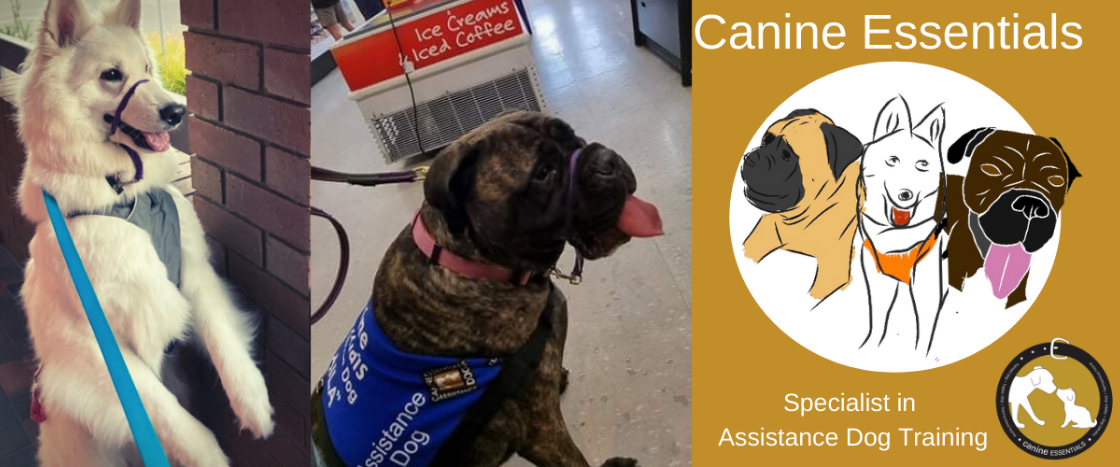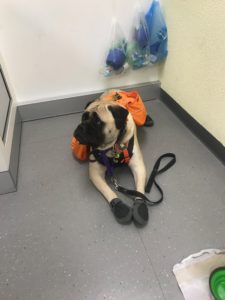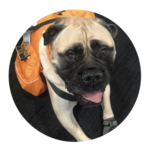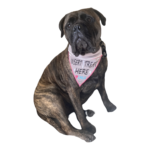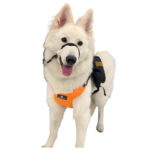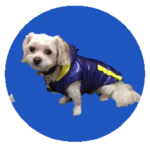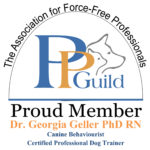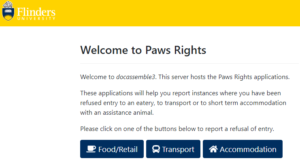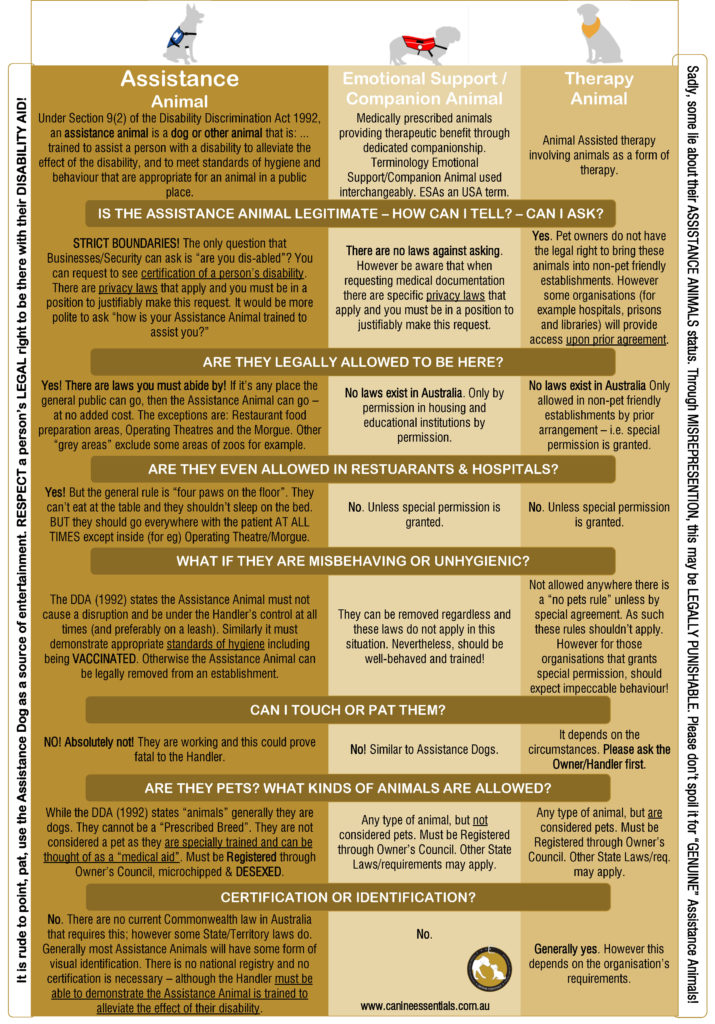Flying with JetStar
JetStar complies with the Disability Discrimination Act (1992) to fly domestically withing Australia. However you must prepare early! Click here to see information about “Specific Assistance” when flying with JetStar. Helpful information about how they comply with Owner-Trained Assistance Dogs is available here (page 7-8; 14-15; 18; 30-33). In particular, their Disability Access Facilitation Plan makes reference to the following:
(c) Any other guide or assistant dog which is trained to assist a person with a disability (to alleviate the disability) and trained to meet standards of hygiene and behaviour that is appropriate for an animal in an aircraft cabin. These dogs may only be carried in the aircraft cabin if clearance has been given in response to an application made to our airline (see above). This application must be submitted to us at least 14 days prior to travel and application forms are available on our Specific Assistance page on www.jetstar.com. You’ll need to submit your application at least 7 days before you travel if travelling to or from the US.
Airline Regulations in Australia
The Human Rights Commission (2017) oversees discriminatory acts as part of their statutory requirement. The below has been reproduced directly from their web site:
What is the legal understanding of an assistance animal
An assistance animal is a trained support designed to facilitate the participation of people with disability in accessing various aspects of personal and public life. They are sometimes mistaken as a pet but provide an essential function for some people with disability.
The Disability Discrimination Act 1992 (Cth) (DDA) in Section 9, sets out the legal definition of an assistance animal as a dog or other animal that:
(a) is accredited under a State or Territory law to assist a person with a disability to alleviate the effects of disability; or
(b) is accredited by an animal training organisation prescribed in the regulations; or
(c) is trained to assist a person with a disability to alleviate the effect of the disability and meets standards of hygiene and behaviour that are appropriate for an animal in a public place.
A recent Federal Court decision provides a good understanding about the law with respect to assistance animals and travel on aircraft. The judgment can be found here. A discussion of the key points of the case is below.
Mulligan v Virgin Australia Pty Ltd [2015] FCAFC 130
This is a decision of the Full Court of the Federal Court, allowing an appeal from a decision of the Federal Circuit Court (Mulligan v Virgin Australia Airlines Pty Ltd [2015] FCCA 157).
Mr Mulligan complained that Virgin Airlines Australia Pty Ltd (Virgin) discriminated against him on the grounds of disability, by refusing to allow him to travel on flights while accompanied by his assistance dog.
Mr Mulligan’s dog had been trained to assist him with relation to his cerebral palsy and vision and hearing impairments. It had been trained by a dog training school, but not one that was ‘accredited’ for the purposes of the DDA.
The Court allowed the appeal, and ordered that Virgin pay Mr Mulligan compensation in the amount of $10,000. The Court also declared that the conduct of Virgin amounted to unlawful discrimination under the DDA.
The key findings of the Court in the appeal include:
1. An animal may be an assistance animal under the DDA if it has received relevant training, regardless of who has provided that training. It isn’t necessary that an animal has been trained by an ‘accredited’ organisation. The DDA provides several ways an animal can qualify as an assistance animal. Under one of these, an animal will qualify as an assistance animal if it is trained to assist a person with a disability, and trained to meet standards of hygiene and behaviour that are appropriate for an animal in a public place. The Court found that Mr Mulligan’s dog was trained to meet this definition of an assistance animal under the DDA.
2. The correct ‘comparator’ for Mr Mulligan was a person who was not accompanied by an assistance animal. (The correct comparator was not a person without a disability, who wanted to bring a dog onto a plane.) Mr Mulligan had claimed that Virgin ‘directly’ discriminated against him. To make out a claim of direct discrimination, it was necessary for Mr Mulligan to show that he was treated less favourably than a person ‘without [his] disability’ would have been. The DDA has special provisions relating to assistance animals. To discriminate against a person because they are accompanied by an assistance animal amounts to discriminating against them because they have a disability.
3. The Civil Aviation Regulations did not override the DDA, and prohibit Virgin from carrying Mr Mulligan’s dog. Virgin had argued that it was only allowed to carry animals in the cabins of its aeroplanes if the animals met requirements which were contained in a ‘Permission’ issued by the Civil Aviation Safety Authority (CASA). Acting under the Civil Aviation Regulations 1988 (Cth), CASA had issued Virgin with a ‘Permission’ allowing it to carry assistance animals that met a strict set of criteria, including a requirement that the animal be trained by certain accredited organisations. Mr Mulligan’s dog had not been trained by an accredited organisation.
Virgin argued that this CASA Permission took precedence over the DDA. That is, Virgin argued that because Mr Mulligan’s dog did not meet the standards set out in the CASA Permission, the DDA did not apply. The Court held that this was not the case. It held that an exception in the Civil Aviation Regulations applied to allow Virgin to carry Mr Mulligan’s dog. Those Regulations do not prohibit an airline from carrying a dog that is trained to assist a person with a hearing or vision impairment. Mr Mulligan’s dog met this definition.
(The outcome of this case could have been different if Mr Mulligan’s assistant animal was not a dog, or if Mr Mulligan’s disability did not include a vision impairment or a hearing impairment).
4. The CASA ‘Permission’ and the Civil Aviation Regulations were not ‘prescribed laws’ for the purposes of the DDA. The DDA contains an exception which says that it is not unlawful under the DDA to do an act if a person (or a company like Virgin) does it to comply with a ‘prescribed law’. However, a law only qualifies as a ‘prescribed law’ if it is specially prescribed in the Disability Discrimination Regulations 1996 (Cth), which the CASA Permission and the Civil Aviation Regulations were not.
5. Further, the Court held that the CASA ‘Permission’ was not a ‘legislative instrument’. That was another reason that it could not be a ‘prescribed law’.
6. The Court in this case did not consider the question of what kind of evidence a person who claims they have an assistance animal can be asked to provide to show that their animal is:
(a) an assistance animal; and
(b) trained to meet appropriate levels of hygiene and behaviour.
The DDA states that it is not unlawful to ask for this evidence, and it is not unlawful to discriminate against a person who does not provide evidence of these matters. Because of its other findings, the Court did not need to consider in detail the questions of what kind of evidence a person can ask for, how much evidence they can ask for, and how persuasive it must be.
That said, the Civil Aviation Authority has specific information regarding flying with Assistance Dogs. As directly quoted from their web site:
Assistance dogs – general information for travellers
Assistance dogs are trained and accredited by an approved organisation to assist a person to alleviate the effects of a disability (including that the dog has passed the public access test (PAT)). Assistance dogs fall into three categories:
- guide dogs – dogs that assist a person to alleviate the effects of a vision impairment
- hearing dogs – dogs that assist a person to alleviate the effects of a hearing impairment
- other assistance dogs – dogs that assist a person to overcome the effects of a diagnosed disability (including physical, sensory or psychological disabilities), other than a vision or hearing impairment.
Regulations and obtaining approval from an airline
The carriage of animals on aircraft is covered under regulation 256A of the Civil Aviation Regulations 1988 (CAR). Only assistance dogs that are accompanying a visually impaired or hearing impaired person as a guide or an assistant are covered under CAR 256A. Carriage of assistance dogs other than guide dogs and hearing dogs are not specifically mentioned in CAR 256A. The carriage is regulated through permissions issued to some airlines enabling them to accept assistance dogs in the cabin of an aircraft. Please see carriage of assistance dogs in the cabin of an aircraft for information CASA provides to the operators (airlines).
Passengers must notify the airline as soon as possible of their intentions to travel with an assistance dog, with each airline requiring different notice periods (please check with the airline for specific requirements). CASA does not issue permissions to individual passengers, therefore passengers seeking approval must contact the airline directly, as they make an assessment based on the identified risks in their operation. If the airline you are travelling with does not have permission to accept assistance dogs, they can apply directly to CASA for approval.
Approval will vary from airline to airline. Approval from one airline does not guarantee approval from other airlines, as each airline is required to develop procedures in relation to assistance dogs that address risks specific to their operations. If you are travelling internationally on an overseas based airline, you will need to contact that carrier directly to establish what their regulations and procedures require. The Australian Department of Agriculture and Water Resources provides information on quarantine regulations.
Once you have received approval from the airline, generally, your assistance dog will be accepted for travel. However, travel in the aircraft cabin is always subject to final approval of the operating captain of your flight, regardless of approval from the airline.
If an airline will not grant approval for the travel of your assistance dog, CASA will not intervene. Under the Civil Aviation Act 1988, CASA’s functions relate to the safety of air navigation within Australian and on Australian registered aircraft travelling outside of Australia. CASA’s role in relation to assistance dogs relates to the safety of aircraft, crew and passengers.
If you believe you have not been dealt with fairly in relation to the carriage of your assistance animal you may seek further advice from the Australian Human Rights Commission.
Training requirements for assistance dogs
It is a requirement to be able to demonstrate that your assistance dog has been trained or is being trained as an assistance dog by an approved organisation. An approved organisation is an assistance dog training organisation which is accepted by the airline and:
- Is accredited by an animal training organisation prescribed by the Disability Discrimination Act 1992 – Section 9, or
- meets or exceeds the minimum standards set by:
- Assistance Dogs International in respect of organisation’s which are eligible to be full members, or
- the Guide, Hearing and Assistance Dogs Act 2009 (Qld).
Please note there are currently no organisation’s prescribed under the DDA.
In addition to being trained by an approved organisation, you need to provide evidence that your assistance dog has completed a public access test (PAT) showing it is suitable for travel on public transport or for an assistance dog being trained. Documentary evidence must be provided from an approved organisation showing that your assistance dog is suitable for travel on public transport. If your dog has been trained overseas, provided that you can demonstrate that your assistance dog has been trained and accredited by a foreign assistance dog training organisation which meets or exceeds the minimum standards as set out by Assistance Dogs International for full membership of that organisation, your assistance dog will generally be accepted for travel.
If you have trained your assistance dog (owner trained), you will still need to comply with the conditions outlined above, as well as an independent assessment of the suitability of the training. It is recommended that you speak with the airline you are traveling with to discuss what options are available.
At the airport and traveling in the cabin
If the assistance dog is trained and accompanying its handler, the person accompanying the assistance dog must produce to the airline a proof of identity document issued by an approved organisation, showing that the dog has passed the PAT. If the assistance dog is accompanying its trainer, the operator must be provided with a proof of identity document issued by an approved organisation, identifying the person as an approved trainer. The assistance dog must be accompanying its handler or its trainer from an approved organisation throughout the airport terminal and in the cabin.
While travelling in the cabin, the airline will determine the most appropriate seat for you and your assistance dog based on a number of factors including the particular aircraft and configuration you will be flying on. Your assistance dog will be placed as close to you as practicably possible, on a moisture absorbent mat on the floor of the aircraft, which will be supplied by the airline. Your assistance dog must be restrained in a way that will prevent the dog from moving from the mat.
